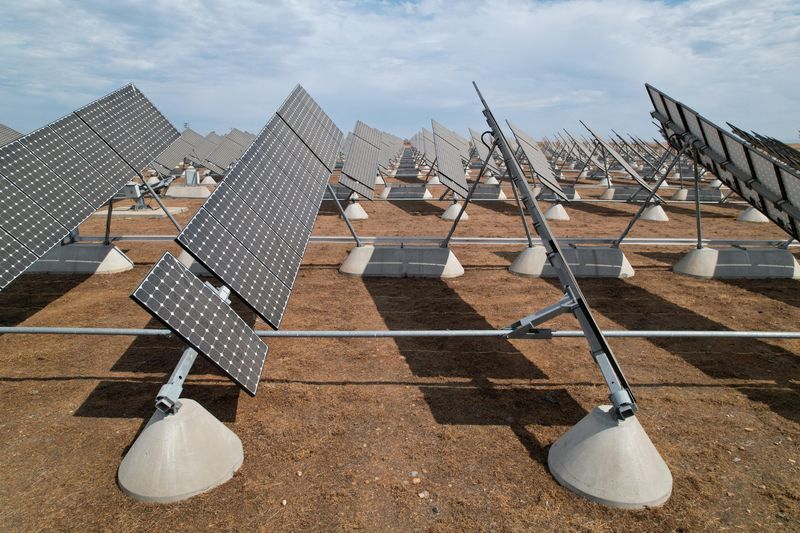US House committee votes to repeal Biden solar panel policy
2023.04.19 13:44
3/3

© Reuters. FILE PHOTO: Solar panels are set up in the solar farm at the University of California, Merced, in Merced, California, U.S. August 17, 2022. REUTERS/Nathan Frandino/File Photo
2/3
By Nichola Groom
(Reuters) – A U.S. House of Representatives committee voted in favor of restoring tariffs on solar panels from four Southeast Asian nations on Wednesday and reversing President Joe Biden’s earlier suspension, setting the resolution up for a vote by the full House.
Biden suspended tariffs last June as part of a key pillar of his clean energy policy. The repeal effort is aimed supporting domestic solar manufacturers that have struggled to compete with cheap panels made overseas, often by Chinese companies, though U.S. buyers have spoken against the repeal.
The resolution passed the House Ways and Means committee 26 to 13. Democrat Terri Sewell joined the Republican majority in approving the measure.
The bill faces an uphill battle. If approved by the House, it will be sent to the Senate, which Democrats control and where it is not expected to have enough support to override a veto by Biden.
Republicans and Democrats introduced the measure in January under the Congressional Review Act (CRA), a law that allows Congress to reverse federal agency rules with a simple majority.
Representative Dan Kildee, a Democrat who co-sponsored the resolution, did not vote because he was recovering from surgery. He said in a statement that “by suspending tariffs on those who violate our trade laws, we are rewarding bad behavior and penalizing companies that do follow the law.”
The vote is a concern to U.S. solar project developers, who have argued that tariffs would freeze development of projects needed to meet Biden’s ambitious climate change goals.
“The Ways and Means Committee just took a hammer to business certainty and American energy independence,” Solar Energy Industries Association President Abigail Ross Hopper said in a statement.
Biden last year waived tariffs on solar products from Cambodia, Thailand, Malaysia and Vietnam as the Commerce Department was considering whether those imports were dodging duties on goods made in China and violating U.S. trade law.
Months later, Commerce issued a preliminary decision to extend existing tariffs on Chinese solar products to goods from those nations.








